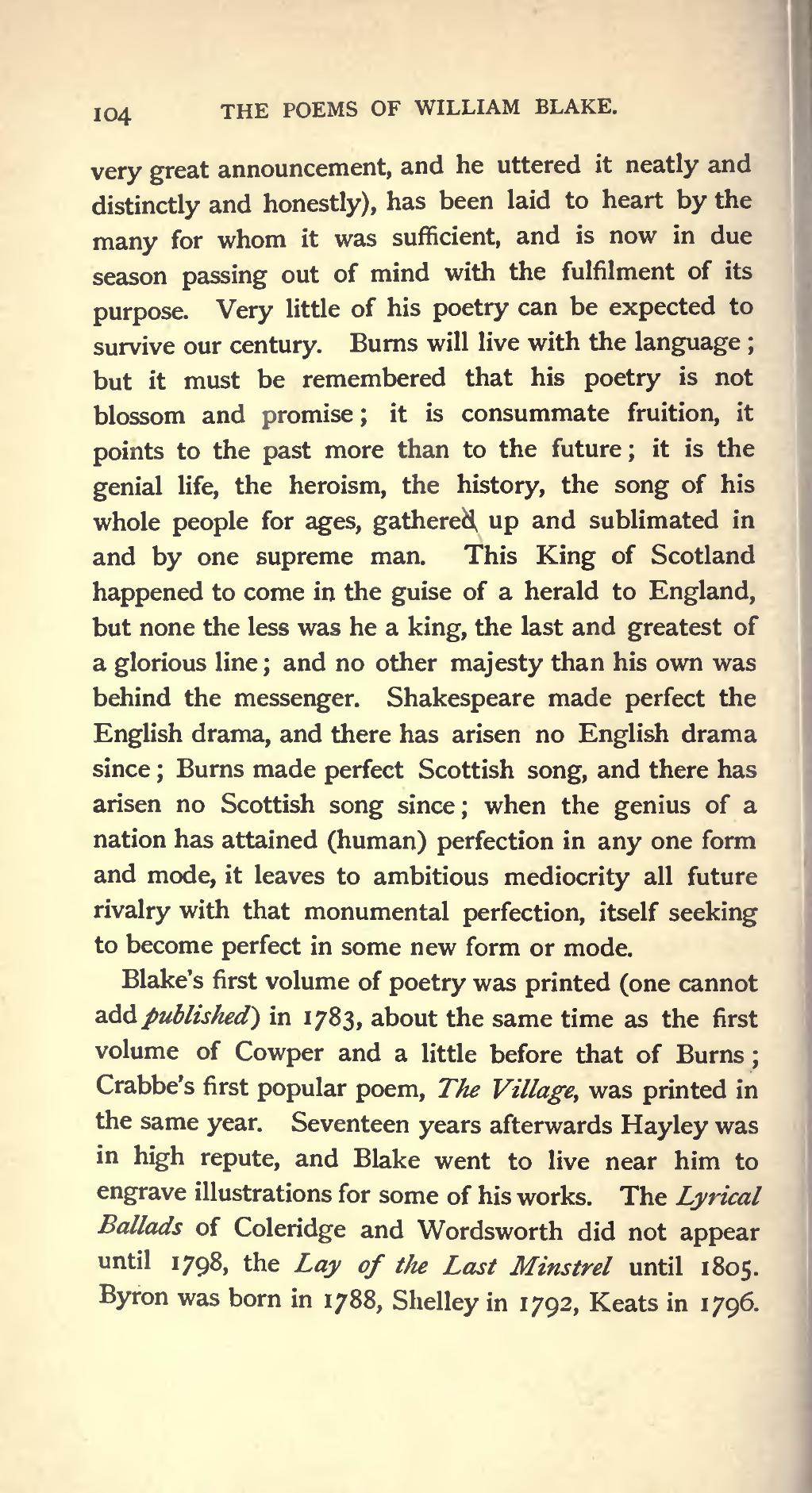very great announcement, and he uttered it neatly and distinctly and honestly), has been laid to heart by the many for whom it was sufficient, and is now in due season passing out of mind with the fulfilment of its purpose. Very little of his poetry can be expected to survive our century. Burns will live with the language; but it must be remembered that his poetry is not blossom and promise; it is consummate fruition, it points to the past more than to the future; it is the genial life, the heroism, the history, the song of his whole people for ages, gathered up and sublimated in and by one supreme man. This King of Scotland happened to come in the guise of a herald to England, but none the less was he a king, the last and greatest of a glorious line; and no other majesty than his own was behind the messenger. Shakespeare made perfect the English drama, and there has arisen no English drama since; Burns made perfect Scottish song, and there has arisen no Scottish song since; when the genius of a nation has attained (human) perfection in any one form and mode, it leaves to ambitious mediocrity all future rivalry with that monumental perfection, itself seeking to become perfect in some new form or mode.
Blake's first volume of poetry was printed (one cannot add published} in 1783, about the same time as the first volume of Cowper and a little before that of Burns; Crabbe's first popular poem, The Village, was printed in the same year. Seventeen years afterwards Hayley was in high repute, and Blake went to live near him to engrave illustrations for some of his works. The Lyrical Ballads of Coleridge and Wordsworth did not appear until 1798, the Lay of the Last Minstrel until 1805. Byron was born in 1788, Shelley in 1792, Keats in 1796.

